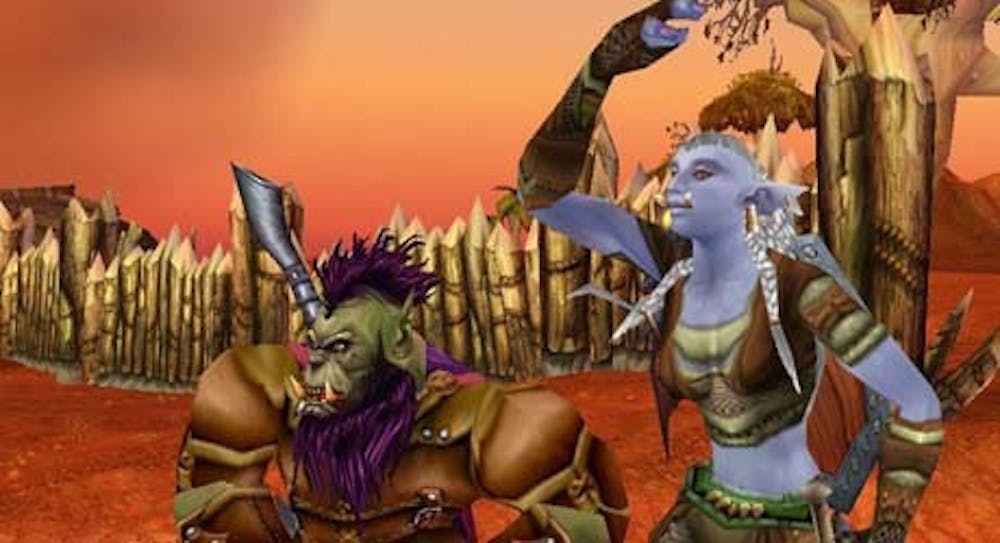Instead of logging onto Blackboard to complete homework this spring, students in one class will enter the “World of Warcraft” and “Second Life” to study the culture of online virtual environments.
“Discourses, Community, and Power in Virtual Worlds,” or ENG 654, is open to students of all majors and interests. The course intends to adapt to an increasingly technological environment.
“We want them to get the experience of playing together with different characters that have to take on different roles to really get an experiential sense of how complex game play is in that environment,” said English professor Elisabeth Hayes, who will teach the class with law professor John McKnight.
The class will meet in a physical classroom for half of its sessions and the rest will be held virtually in “World of Warcraft” and “Second Life.”
While the class does require traditional reading and writing assignments, the professors advocate the benefits of learning from video games.
“It’s real responsibility, real skills,” McKnight said.
McKnight and Hayes hope to dissuade students and professors from the stereotypical thinking that gaming rots the brain. They believe that through gaming, students can learn many valuable life skills, such as management, leadership, problem solving, communication and the scientific method.
“I know teenagers who are running thousand-person organizations [within these games],” McKnight said. “[They] have to meet time-tables and budgets and schedules and have spread-sheet management skills, demonstrating responsibilities and a knowledge base better than most MBAs.”
The professors also advocate experimental forms of learning that move beyond Blackboard and other course management software. Rather than hosting traditional discussion forums on Blackboard, the professors require their students to communicate through the social-networking site Ning.
Ning resembles the format of Facebook but hosts only private pages for certain groups.
“[Blackboard] is not the kind of community that we aspire to,” Hayes said.
When using Ning for communication with a former class, Hayes and McKnight found that because students posted their assignments to the class on a newsfeed like Facebook, other students willingly responded. The professors said they never required students to discuss more than one question a week, but because of the open format and design in Ning, students were eager to speak with each other about their homework.
Non-degree-seeking graduate student Hart Larew took a law class in spring 2010 taught by McKnight and Hayes that also embedded students within “World of Warcraft” and “Second Life.”
The class, “Governance of Virtual Worlds,” studied the legal aspects of democracy within online communities. Students from all majors and backgrounds participated.
“An appreciation for design is really the main thing that I’ve gained out of this,” said Larew, who intends to take this semester’s ENG 654 as well.
When Larew describes design, he means all forms of design and structure behind the course. He said he appreciated the immersion, socialization and sense of achievement in the virtual worlds.
The research behind video game learning extends not only from academic essays from Harvard and Pennsylvania University, but also from blogs by enthusiastic professors and the innovative techniques developed by Hayes and McKnight at ASU.
They said that while scholars and students have studied “World of Warcraft” and “Second Life” separately, ENG 654 is unique because it combines observations of both worlds.
While at least 300 different universities have taught through “Second Life” as a virtual world, Hayes and McKnight still consider the field a rare and exciting opportunity for education.
“It’s the future — it’s cost effective and easy to access,” Larew said.
Reach the reporter at hhuskins@asu.edu.





